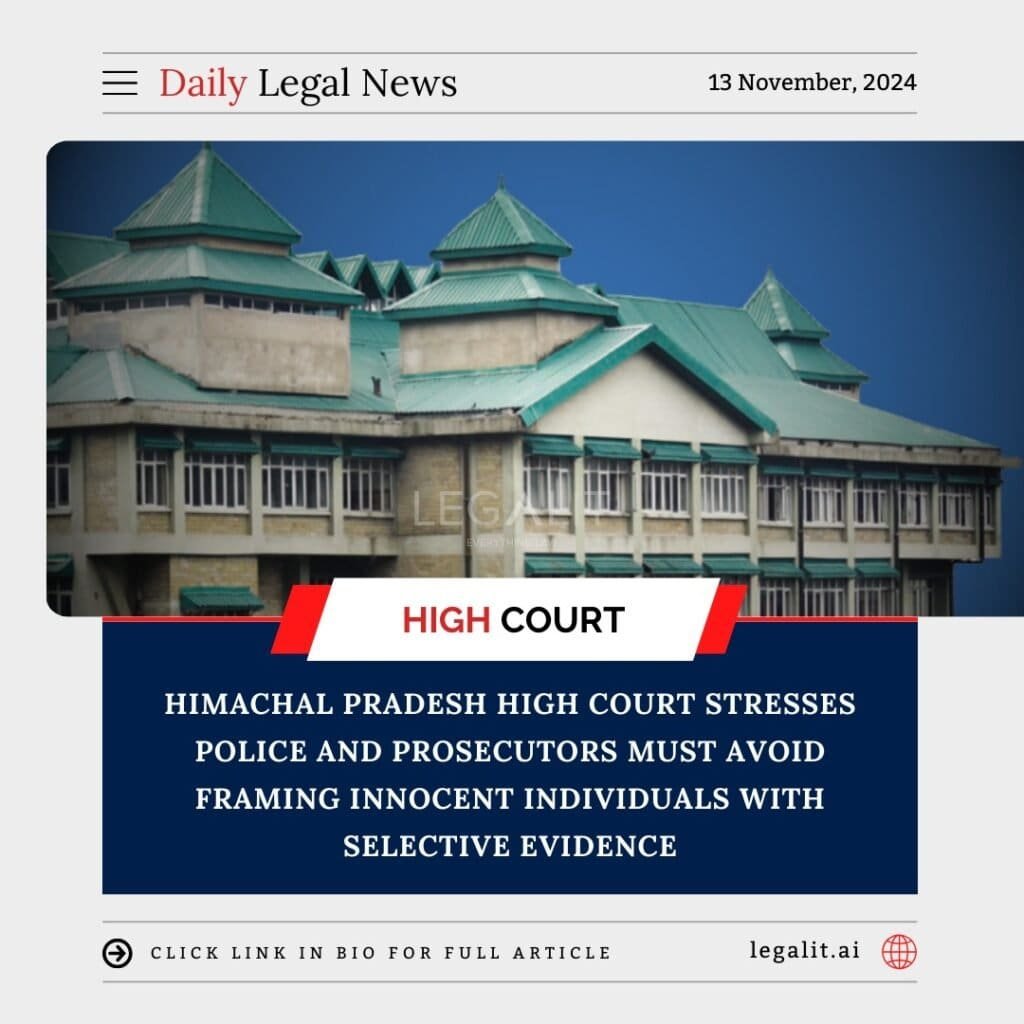
The Himachal Pradesh High Court recently emphasized that police officers and prosecutors must ensure they do not frame innocent individuals by presenting selective evidence in criminal cases. The court’s observation comes in response to a case where the accused’s defense pointed out the lack of reliable and complete evidence, stressing the importance of fair trials and justice.
Background:
In this particular case, the accused challenged the integrity of the investigation, claiming that the police had selectively presented evidence to frame him for a crime he did not commit. The defense argued that crucial evidence supporting the accused’s innocence had been omitted, and the case had been built on circumstantial evidence that lacked sufficient corroboration.
Court’s Rationale:
The High Court observed that law enforcement agencies and prosecutors have a duty to ensure a fair trial, which includes presenting all available evidence, both exculpatory and inculpatory. The court underscored that framing an innocent person based on selective or manipulated evidence not only undermines the justice system but also violates fundamental rights. It stressed that the presentation of a complete, unbiased body of evidence is critical in ensuring that only the guilty are convicted, and justice is truly served.
Existing Measures:
Indian criminal law provides safeguards against wrongful prosecution, including the right to a fair trial and the provision for appeals. Courts have the responsibility to scrutinize the evidence carefully and to question any attempt by law enforcement to suppress or omit material evidence that could favor the accused. The judicial system also provides for strict penalties in cases of perjury, evidence tampering, or intentional framing of innocent individuals.
Conclusion:
The Himachal Pradesh High Court’s remarks serve as a crucial reminder to law enforcement and prosecutors about their ethical and legal obligations to ensure fair trials. The case highlights the potential dangers of selective evidence and the importance of maintaining the integrity of the criminal justice system. Moving forward, it calls for more vigilance to prevent the wrongful conviction of innocent individuals.